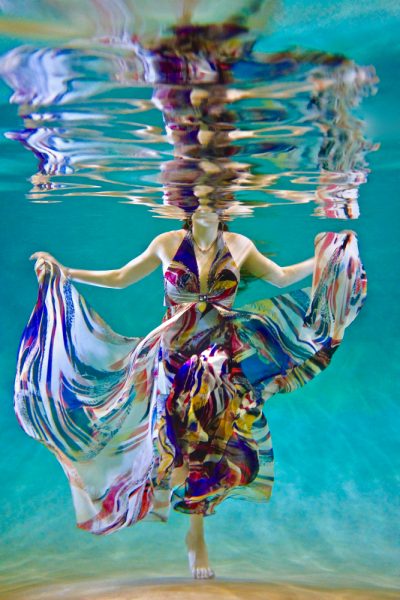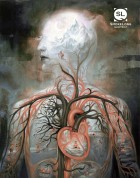I’d love to know about the process of writing this story. Where did the initial idea come from? Did you know from the start that it would be a flash story?
This story was originally a broader exploration from the perspective of teenage girls who are in these types of problematic relationships, where being with a partner requires that you reduce and reorganize the way you think about yourself. I didn’t want to dismiss the variety of those experiences, though, so I set the piece aside for a while. When I revisited it, I had just finished rereading Barbara Gowdy’s incredible collection We so Seldom Look on Love, particularly the story “The Two-Headed Man.” In the story, the two heads are completely different people, suffering through life with opposite and equally hostile personalities. I wanted to explore how a two-headed teenage girl with a combined consciousness, or at least a complimentary consciousness, might fare in a world that doesn’t know where to put them. How do they regard their own complexity when thrown into this questionable relationship? I wouldn’t say I knew it would be flash from the start, but I tried to answer that question as concisely as possible.
There are so many wonderful and surprising details in this story, especially details about the narrators, but the one I’ve become fixated on is that the narrators share a name. How important was it for you in writing this story to clarify (even if just for yourself) how your two-headed narrator functions in the world? Also, did you give your narrators a name? Will you tell us what it is?
I didn’t give the narrators a name! Perhaps I should have. I tried thinking about the common issues they would run into—not getting a part in the play, not having a driver’s license, not looking like other girls. In that way, the narrators don’t function all that differently in the world. They experience the same small tragedies as everyone else, only there’s a more obvious root.
In addition to sharing a name and a body and a lover and pretty much everything, the narrators also share daydreams of having a life with Jack. When you let your mind wander, what do you think about most often? If you could share daydreams with one other person, who would it be?
Aside from the usual mind-wandering, I often think about living by the ocean. I would love to have a patient and understanding future-self to share my daydreams with.
Another moment I love is when the narrators describe Jack’s poem as “haunting. “We liked the way that sounded—everything was haunted, fraught, perilous.” What are some words that you like the sound of?
The word “lugubrious” is one of my favorites because it just barely sounds like what it means. Also: ephemeral, ethereal. Words that are fun to say.
If the narrators of this story read your work, how would they describe it?
It’s likely that they would find Jack’s poetry more enchanting, but they might think my work is a little dramatic. A little haunted, maybe. There would absolutely be some points where they would roll their eyes.



 The core workshop of SmokeLong Fitness is all in writing, so you can take part from anywhere at anytime. We are excited about creating a supportive, consistent and structured environment for flash writers to work on their craft in a community. We are thrilled and proud to say that our workshop participants have won, placed, or been listed in every major flash competition. Community works.
The core workshop of SmokeLong Fitness is all in writing, so you can take part from anywhere at anytime. We are excited about creating a supportive, consistent and structured environment for flash writers to work on their craft in a community. We are thrilled and proud to say that our workshop participants have won, placed, or been listed in every major flash competition. Community works.